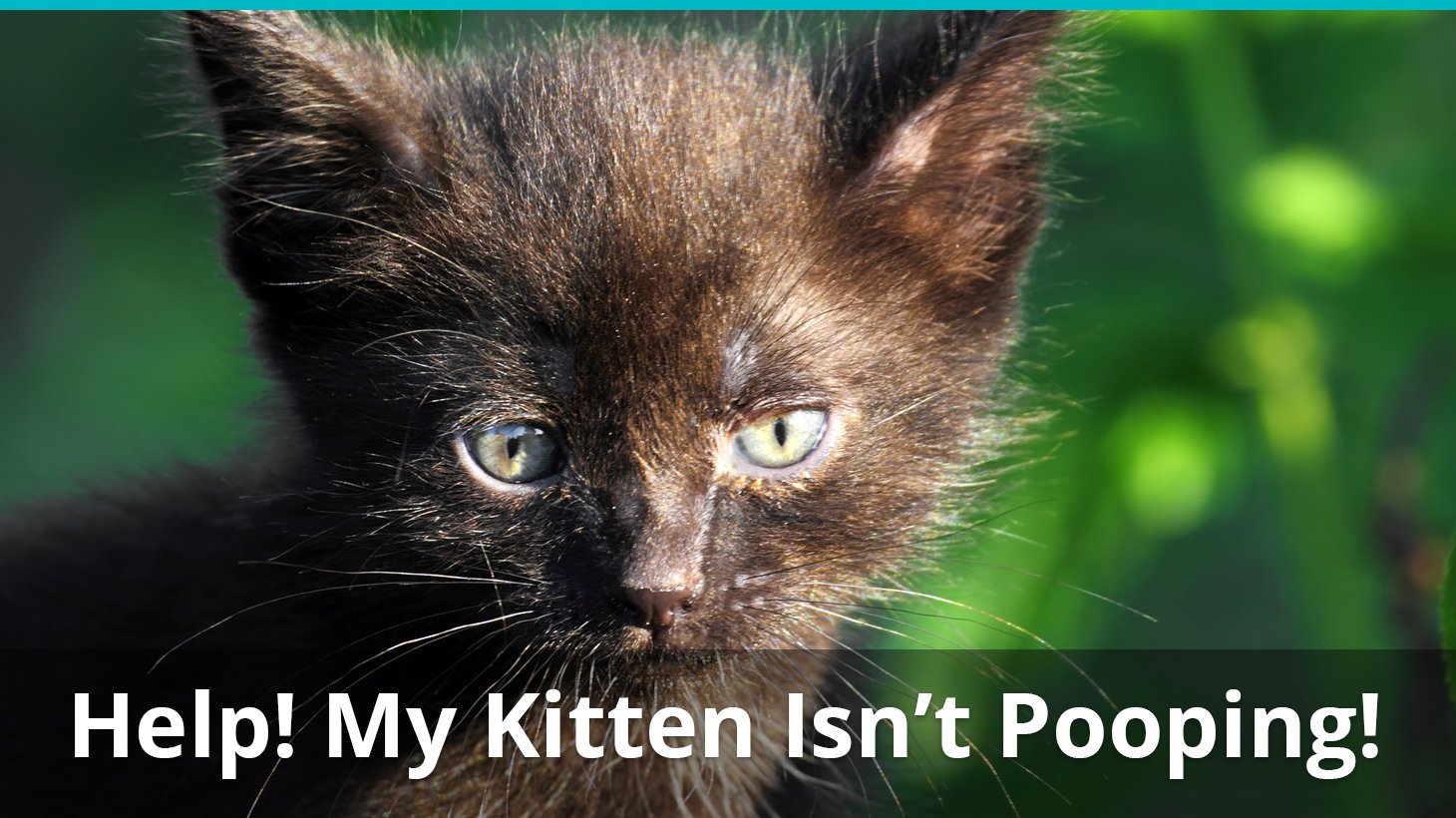Just like human beings, cats have biological needs. And when they have to go, they just have to. But what about when your cat or kitten isn’t pooping properly?
Now, it’s a fairly common problem for pet parents when cats pee outside the box or when they have diarrhea.
But when young cats or kittens don’t (or can’t) go poop at all, it’s much more rare.
I mean, most kittens tend to poop everywhere except for the litter box, right? So you’ll know when something’s up.
Others use the litter box only occasionally. If you’re having this type of problem, check out our article on how to remove pee and poop stains from carpets and other areas in your home.
However, for those young kittens which don’t poop at all, here’s what you need to know.
Why Is My Kitten Not Pooping?
If your kitten hasn’t pooped in, say, 24 hours, there are a few reasons why. Here’s what might be causing your little furball’s unusual behavior:
- Recent deworming
- Recent spaying/ neutering
- Separation anxiety
- Overwhelming new surroundings
- Health problem
If your fluffy pal has been recently dewormed or has been spayed or neutered, it’s completely natural that it won’t defecate over the course of the following 24 hours.
Most kittens suffer from separation anxiety while missing their mothers, their siblings, or simply their previous home and owners. You can’t force a cat to take an instant liking to its new house or apartment and its new pet parents. No matter how much love and devotion you’re showing your pet, you should remain patient until it overcomes the separation anxiety.
The new surroundings will be overwhelming its senses. Apart from refusing to poop, it will probably also want to hide from you.
Finally, your kitten might not be pooping due to an undiagnosed health issue. If it’s not doing its business over the course of a couple of days, you should take it to the vet’s office for a check-up for any health-based conditions.
What To Do If Your Kitten Isn’t Pooping?
Instead of panicking, you should remain patent with your furball. There are several things which you can do in order to help.
Make Alterations To The Cat’s Room
Try to make the kitten’s room as cozy as possible. Focus on room temperature, comfortable napping spots, toys, and noise levels. Kitties need entertainment, but they also need safety and comfort.
Don’t allow the cat to roam around your entire home. Keep it in a single room and don’t allow the children to access it over the upcoming couple of days. Stress and anxiety can harm the kitten’s underdeveloped immune system and can lead to further health problems.
Change The Diet
Unlike humans and dogs, cats don’t have a strong inborn sense of dehydration. As such, if you’re feeding your kitten with dry cat food and it’s not drinking enough water on its own, it may have problems defecating.
Change its food to wet canned cat food suitable for newborn and young kittens. Keep in mind that it’s possible for your pet to get diarrhea when transitioning from the old food to the new one.
Move The Litter Box
Cats are extremely vulnerable while pooping. Getting an automatic litter box isn’t the best option for small kittens as its noises and motions can scare them away.
Opt for a traditional litter box and if the cat isn’t using it, move it somewhere else. Use the quietest room in your home. Don’t leave the lights on in the room with the litter box. Felines are nocturnal creatures and in some cases, bright light can actually irritate their eyes and annoy them.
Another idea is to move the litter box to the same room as the feeding station, thus limiting the kitten’s access to other rooms apart from its designated one. Just place the litter as far away from the food and water as possible.
How To Stimulate The Abdomen And Anal Areas To Help A Kitten Poop
Lastly, you can force the pooping process by stimulating the kitten’s organism. Get a moist lukewarm towel to massage the kitten’s abdomen area gently. This way you’ll be imitating what its mother would do with her tongue after it has eaten and before it has defecated. Be gentle but firm enough to hold the kitten so that it won’t bolt.
If massaging the abdomen doesn’t work, move the cloth slowly from its tummy towards its anal area. Massage the rear end gently and don’t do it for over a minute.
If the kitten hasn’t peed or pooped even after you’ve stimulated its abdomen and anal areas, it’s time to call the vet. There’s a chance your pet could have an undiagnosed health problem. In such cases it’s of intrinsic importance to act on time if you want your fluffy pal to lead a happy, long, and thriving life.


My bobtail kitten starts to pop but it only comes partially out and is hard. She is the only bobtail of four kittens and the only one with this problem